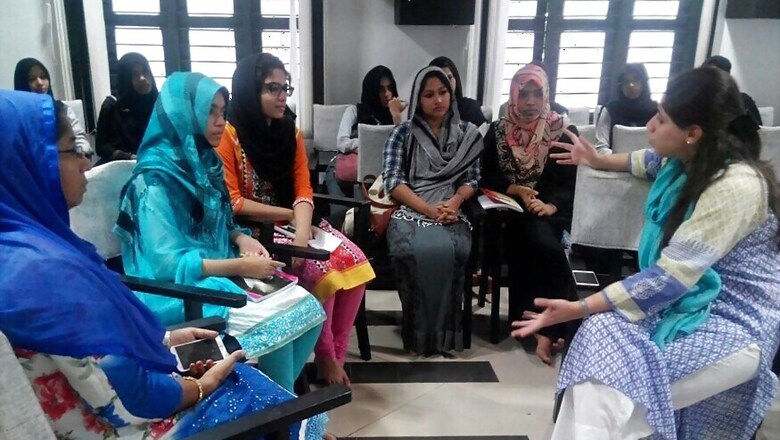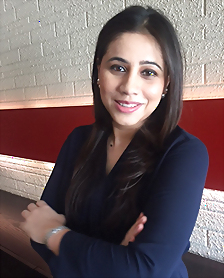
views
Koi haath bhi na milayega jo gale miloge tapaak se, Yeh naye mizaj ka shehr hai zara fasle se mila karo - Bashir Badr
What defines a city's mizaj or temperament? Why are some cities difficult to negotiate? I was a journalist doing my job to understand the first Muslims of India- the mapillas in the battleground state of Kerala. The fact that I am a Muslim from Bihar visiting Kerala is incidental.
Muslims and Christians together constitute over 45% of voters in Kerala and hold the balance of power in God's Own Country. At stake here is the very definition of being a minority. If it's about statistics then Muslims of Malappuram don't fit in it, as it’s a Muslim-majority district with over 70% population. Political scientist Andre Liebich, described minorities as those who represent-"inequality and inferiority, not merely numerical but substantial inferiority.” ‘Inferiority’ or subservience to orthodoxy despite economic prosperity and educational empowerment that’s where the Muslims of Kerala find themselves today. Is it self-imposed and self-enforced?
I want the freedom to think. Women here are conditioned. People say we are getting education but we don’t have the freedom to think. In Kerala there has been technological revolution but no social revolution.
says Jaseela, a mother of three children who is pursuing her Bachelor’s degree in English from Unity Women’s college in Manjeri in Malappuram.
Jaseela represents Kerala’s glorious statistic in literacy but also the state’s biggest paradox. With a literacy rate of 85.5%, much higher than the national average of 65.5%, Muslim women in Kerala are the most literate across India.
Jaseela is conscious of the numbers and its irony- ‘In field of literacy we are okay but when we challenge stereotypes there is a problem. We lack decision-making power. Have power, but no authority or voice. Economical and financial independence doesn't give us that power. We need authority for our voice.’
Across the Muslim-dominated Malabar region girls share the sentiment that marriage is their destiny and knowledge isn’t power. A number of women I spoke to reflect the feeling of a bird in a golden cage- ‘I feel caged, We are asked to live within boundaries that's the big problem and the solution to that is marriage. If we are married then we can do things. The destiny of all girls in our society is marriage.’
What’s holding the literate girls of Kerala back? Why can’t they come out of their cage? I ask.
‘Religion is alright but too much spirituality is holding muslim women back. Whenever we think we are made to rethink what’s right and what’s wrong, we are told to stay within the boundaries of fatwas and shariah’ says Fasmina Sherin who started wearing a veil when she was 15. For the Kerala Muslim women, religiosity is another conundrum they have to solve.
In Kozhikode, where Portuguese explorer Vasco Da Gama landed at the end of the 15th century after riding the strong monsoon winds across the seas, Ruby Mohammad is trying to explore a new religious identity for herself. This 33-year-old started a designer showroom for burqa and hijab in 2000 as ‘the hijab market lacked variety.’ A distinct personality to every hijabi has been her tagline as Ruby introduced veils in myriads of colours, cuts and designs. Keeping in mind the tropical climate of Kerala she even launched a special fabric that absorbs all the sweat to keep a women dry and comfortable.
However it was only six years after launching her brand that Ruby chose an all- concealing burqa for herself? She says it was "a choice not a compulsion and a veil doesn’t stop a woman from doing anything." Ruby further adds that her choice of apparel won’t affect her choice of vote.
Contrary to Muslims in other parts of India who may be moving away from ritualistic practices and symbolic display of religious identity, Muslims in Kerala are wearing it on their sleeves, quite literally. Many would say it’s a severe and self-critical moral code that provides the backdrop to the Muslim’s search for salvation. The confidence comes also from the fact that Kerala has been a melting pot of cultures, where Islam and Christianity arrived in peace and found their own place. There are many in Kerala who feel what was once the state’s strength may soon be becoming its vulnerability.
In Kozhikode, I also met Dr Fazal Gaffoor, the president of the Muslim Education Society. MES is Kerala’s biggest education society which runs over 100 institutions including a medical and an engineering college. Dr Fazal Gaffoor draws on his personal experience of Kerala’s Muslims. He says it was almost unimaginable to see women in hijab during the 1990s, it was only with increased remittances from the Gulf did Malayali NRIs force women to wear burqas.
Last year's remittances by Malayali NRIs crossed a whopping Rs 1 lakh crores. This 'imported Arabisation', as he calls it, is threatening the cultural integration of Kerala where Muslims are increasingly copying Arabs in their clothes and also gradually accepting their food habits and names. Dr Gaffoor says orthodoxy is the mother of communalism and that"both Islamic fundamentalists and Hindu communalists" are gaining grounds.
"Just as the Muslims, the Hindu community too is importing the North Indian culture. They are celebrating Ganesh Puja, giving their kids Sanskrit instead of Dravidian names," he says. Dr Gaffoor fears the Urdu-Hindi divide which is common in North India today may become the narrative of Kerala's tomorrow.
Shariq who studies at Darul Huda Islamic University vehemently dismisses any charge of talibanisation of young Muslims in Islamic institutions in Kerala. He says ISIS is the product of modern wahhabism. With political power comes religious freedom, he says, adding that he is able to practice his religion freely only because Indian Union Muslim league is a dominant force in the political landscape of Kerala.
But not very far from the university there are those like Fasmina who strongly bat for delinking of religion and politics. "Religion is a powerful weapon which the politicians are using. Why should religious leaders go hand in hand with politicians? Why we do have a political organization with a name and symbol of crescent and star like the Muslim League? Why is the BJP using the saffron colour?" she asks.
While addressing the Indian National Congress’s Ramgarh session in 1940, Abul Kalam Azad had said, "In political parlance the word minority… means such a weak community (jamat) which, because of both its number and capacity (salahyiat), finds itself incapable of protecting itself in relation to a larger and more powerful community… Here the issue of capacity (nauyat) is as important as that of number (tadad).’
The Muslims of Kerala have both ‘tadad’ and ‘salahaiyat.’ Despite having the twin oars of education and wealth, have they refused to set sail to newer shores?



















Comments
0 comment